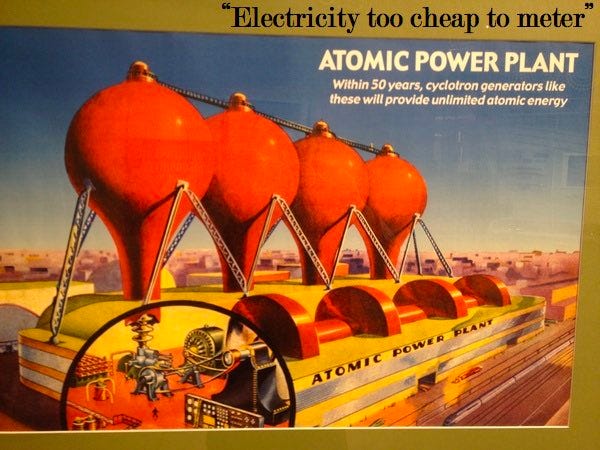Too Cheap to Meter
Storage, compute, and bandwidth keep getting cheaper and cheaper. I pay pennies every month in my AWS bill for cloud storage. It probably costs more for AWS to process my payment than my actual bill. What happens when these services become too cheap to meter?
When it comes to the economics of technology, there's another result of Moore's law –
If the amount of computing power for a given cost doubles every two years, then the cost of a given unit of computing power must halve over the same period. (Mead's Law).
Like the distances in the race between Achilles and the Tortoise, halving makes things get small quick. At some point, we stopped thinking about how much internet bandwidth we were using and we got free services like YouTube. Storage became so cheap that many companies gave it away for free, and we got practically unlimited storage in our Gmail inboxes. Now, computing power is becoming cheap enough for businesses like Replit or GitHub Codespaces to give it away for free.
There's something special about when things are so cheap that they're free. As I wrote in Jevons Paradox and Software Efficiency, when the efficiency of something increases, sometimes we end up using more of it. There's few distribution strategies that work better than giving a paid service away for free.
The phrase “too cheap to meter” was used in a 1954 speech by the Chairman of the Atomic Energy Commission, Lewis Strauss.
"“It is not too much to expect that our children will enjoy in their homes electrical energy too cheap to meter.”
Strauss's prediction didn't come true. Imagine if electricity were so plentiful that it was free. Everyone would have an electric car (unfortunately we might be mining Bitcoin in them too). But in many ways, other important technology became too cheap to meter.
In truly competitive markets, the price falls to the marginal cost. The marginal cost of software is zero. That's why I believe open source software has been so successful, especially in the infrastructure space.
The next biggest thing to become too cheap to meter is cryptocurrency transactions. Different layers are being built with lower and lower transaction fees. The next logical step is zero.

